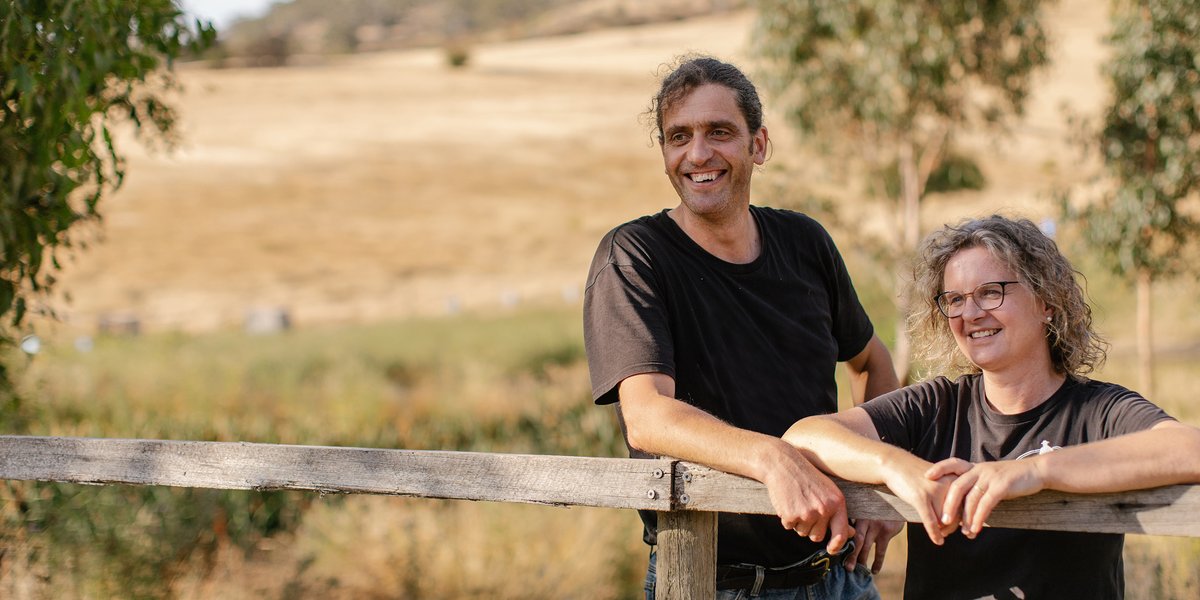Tim Crow
"I believe we need to move away from factory farming, and towards more sustainable and responsible food systems. I see hemp as an exciting planet-based alternative."
"You come to Tassie, and you realise... they’re already working out the best way to store soil carbon. All the things that people talk about at regenerative farming conferences? Tasmanian farms are already doing that."
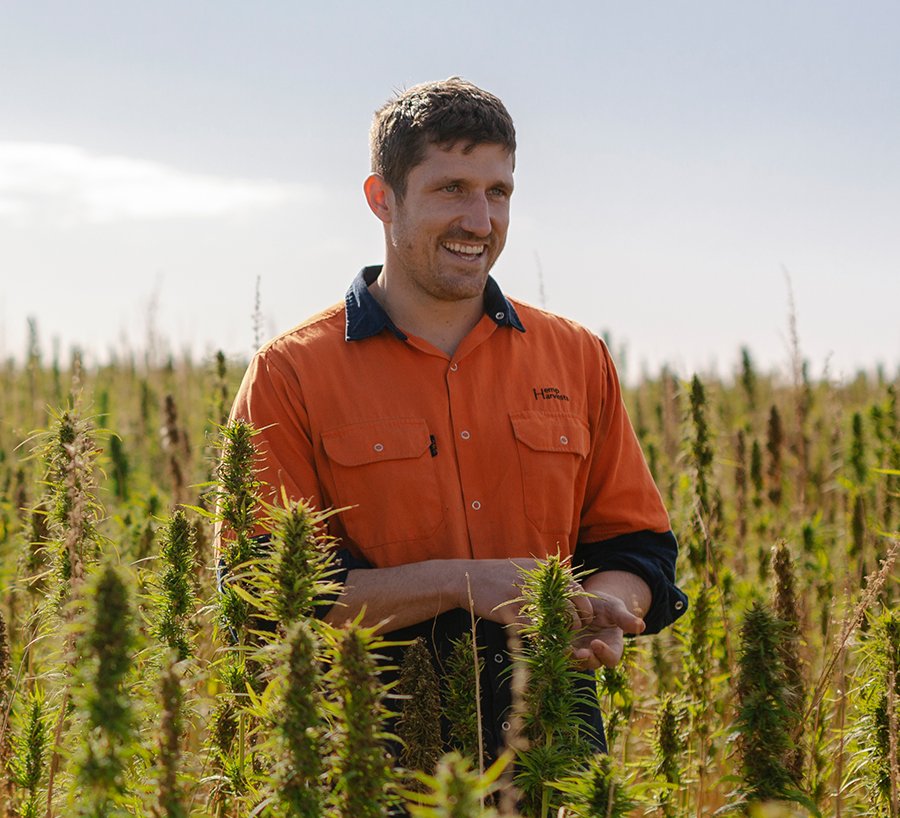
It’s a healthy and delicious food. It’s a tough, environmentally friendly textile and building material. It’s a plant so useful that it underpinned economies from ancient times to the late 19th Century. It happens to grow beautifully in Tasmania..
Yet to a lot of people, hemp is just marijuana by another name.
On the outskirts of Deloraine, in northern Tasmania, you’ll find a man on a mission to turn this much-misunderstood plant into a popular and well-understood food source.
Tim Crow first discovered the magic of hemp while undertaking a business degree, and was struck by its complexities – especially in the US where there was a disconnect between what was happening at state and federal level – and by the need for better consumer education to help combat historic stigmas. Now Tim has become a passionate advocate for hemp’s potential as a sustainable addition to our future diet.
“The hemp industry has been stifled by an unscientific and broad-sweeping prohibition from the past, but the plant has a wide array of characteristics that we should be utilising to help create a sustainable future,” says Tim. “One of the major drivers that led me to start my business was learning about the environmental pressures resulting from the growth of our industrialised society, and being inspired to work on finding solutions rather than complaining about the problems.”
Four years ago, Tim founded Hemp Harvests, Tasmania’s only hemp processing facility, and since then he has been working closely with Tasmanian farmers to produce a range of world-class hemp products. While he doesn’t cultivate commercial scale quantities of hemp himself, Tim conducts research trials to identify which varieties will work best here, contracts with farmers to produce seeds, and processes hemp into high-quality food products including flour, protein powder, hemp hearts and hemp oil, which are then sold in bulk to bakeries and food stores.
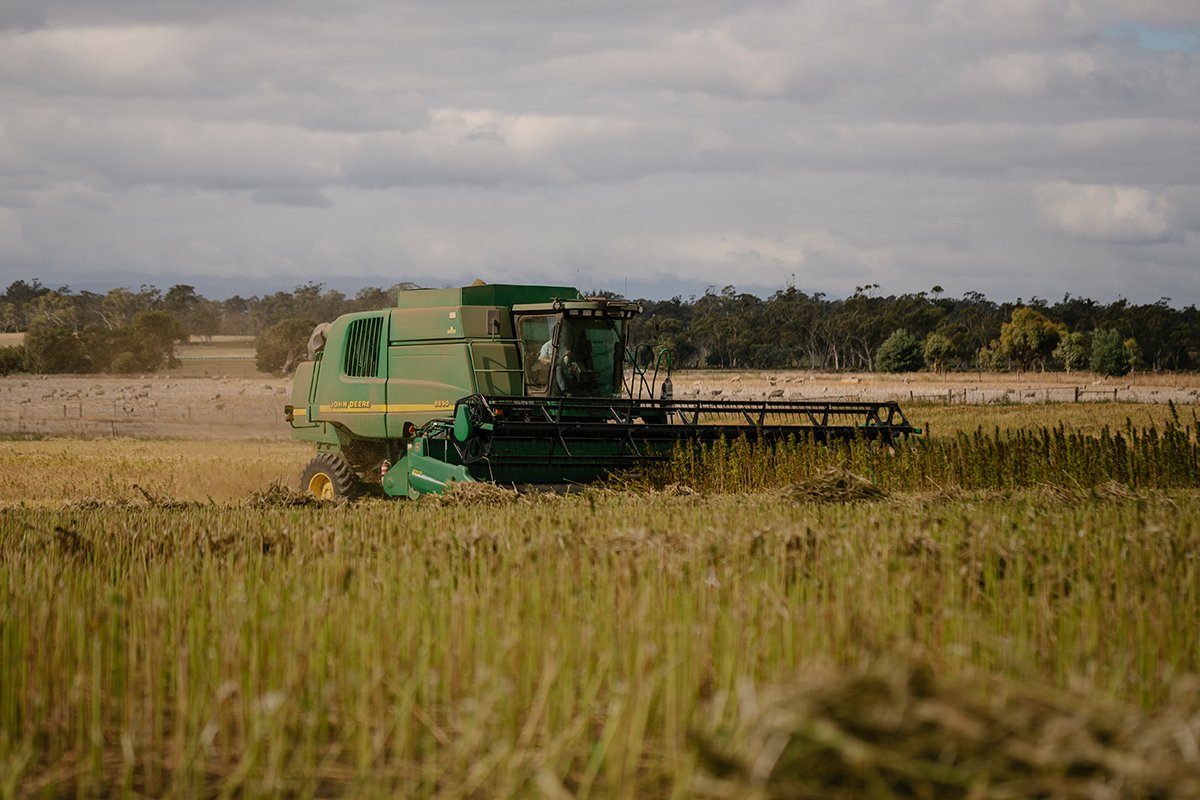
In true Tasmanian style, Tim’s first introduction to the hemp industry was through a serendipitous personal connection — although it happened in Queensland, where he grew up. “My mum had a coffee with an old friend, and told her that I was interested in hemp. It turns out her brother-in-law was Phil Warner, who is one of the top people in the world in hemp.”
Warner is an industry pioneer and long-time supporter of Tasmanian hemp. His company, Ecofibre Industries, has been growing the crop in the state since 1999.
“Phil kind of took us under his wing,” says Tim. “He brought us down to Tasmania to show us around because it was the best place, in his mind, to grow it. If you're going to be in agriculture, it's pretty hard to beat Tasmania in a lot of ways.”
Tim was living in Brisbane, and he admits that his big city background initially made him wary about a move to Tasmania. “When I first came down, I couldn’t see myself living here. I got real Toowoomba vibes, so I actually moved to Melbourne and commuted for the first year. But the more time I spent down here the more I realised there’s a lot more to it. It’s awesome — really good food, good wine, good coffee. It’s a great home for creators.”
It’s just as well that Tim was won over by Tasmania, because Phil Warner’s view of the state as a great place to grow hemp was spot on. Tasmania’s combination of rich alluvial soils, clean air and water, and moderate climate all provide perfect conditions for hemp cultivation.
“In summer we have really long, cool days,” says Tim. “It’s good for production because hemp loves long days – it’s ideal for producing a lot of plant matter. Because there’s so much green material in hemp, you can get a lot of mould. If it’s grown up in Queensland, for example, the humidity causes a lot of problems. They have to grow it in winter. Tassie doesn’t have that problem, and the cool days actually give you a much nicer tasting seed, with a much lighter profile.”
Despite those ideal growing conditions, Tim soon discovered that hemp production in the state was only taking place on a very small scale, and that no-one in Tasmania was actually processing it. He established Hemp Harvests to fill that gap in the market, and over the last four years the business has grown steadily.
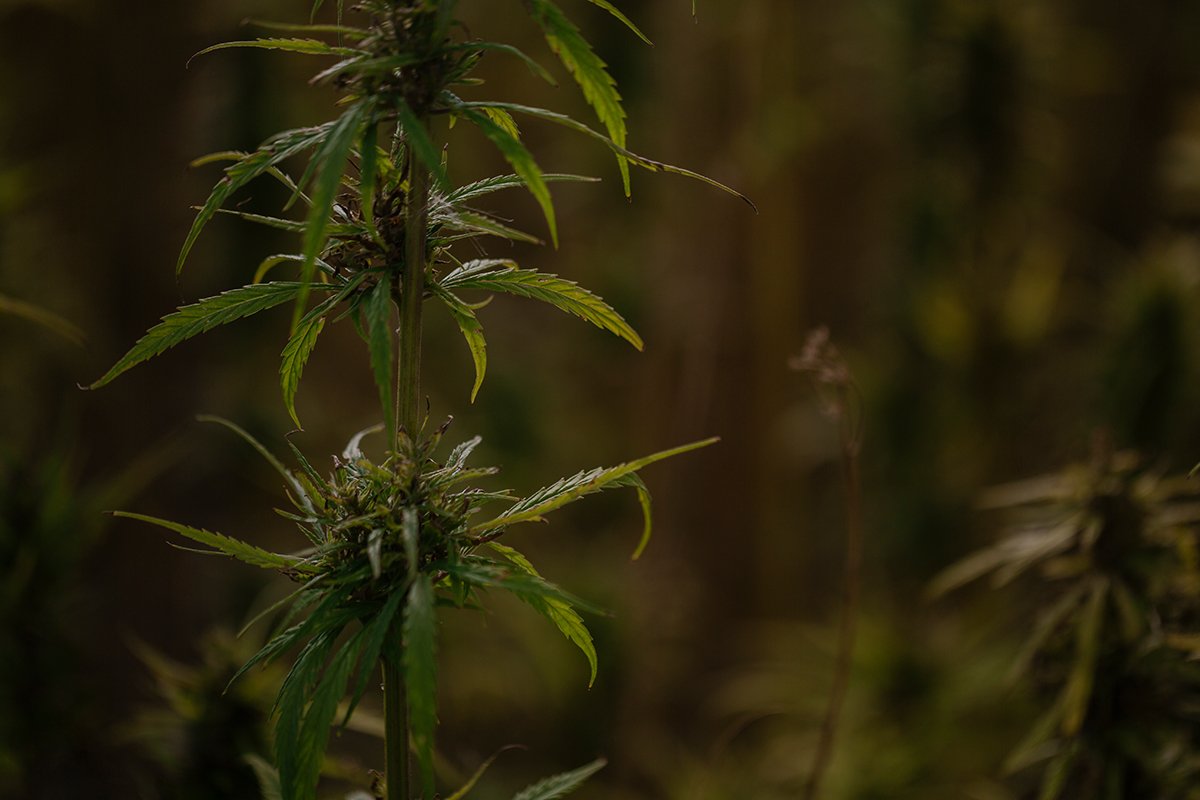
The introductions Tim has had to members of Tasmania’s farming community – initially from Phil Warner, but also from Tim Schmidt, current President of the Tasmanian Hemp Association – have been an essential part of that growth. He also admits that coming to Tasmania has been a real eye-opener in terms of what farmers here are already achieving.
“You come to Tassie, and you realise everyone is already growing multiple crops with different vegetables. They’ve all got livestock on their property, they’re working out the best way to store soil carbon. All the things that people talk about at regenerative farming conferences — Tasmanian farms are already doing that.”
One of the key attractions of hemp is that it can be easily added to a farm without disrupting those existing activities, and it’s possible for farmers to dip their toes in the water with a small crop initially, before building up more and more over time.
“People are open to it because it doesn’t really interfere with other crops or livestock,” says Tim. “It’s a really short growing window, so farmers can still cut silage for their hay, they can still sow their grass before winter comes. You can get a good return per hectare over a really short period of time.”
Historically, hemp has been best known for its use in seafaring. Its high resistance to degradation from sunlight and salt made it a widely used material for sails, rigging, ropes, caulking, and even the clothing worn by sailors.
But hemp is also an astonishingly nutritious food source, and it’s that quality that really drew Tim to the industry. Hemp seeds contain twice as much protein as chia and flax; they’re packed with vitamins and minerals; and they’re anti-inflammatory and hypoallergenic, making them a suitable addition into even the strictest of diets.
Hemp crops can be grown without the intensive use of water, energy, and chemicals that many other plant and animal proteins require. It’s a sustainable alternative to thousands of existing products, but — thanks to its THC-rich, psychoactive cousin — it still has a few hurdles to overcome first.
“I believe we need to move away from factory farming, and towards more sustainable and responsible food systems,” says Tim. “I see hemp as an exciting planet-based alternative to help us reduce our reliance on low-cost and unsustainable methods to produce animal-based proteins. But the big thing is really educating people on how it can be used — getting it into as many delicious foods as possible to dispel some of the myths and stigma attached to the plant. I really want to create products designed as solutions to some of our current problems.”
Tim is featured in partnership with our friends at Trade Tasmania.

We worked with north west Tasmanian photographers Moon Cheese Studio, southern Tasmanian cinematographer Joshua Lamont ACS, and southern Tasmanian writer Ruth Dawkins for this Tasmanian story.
You can find these images and more in our Tasmanian Partner Toolkit.
Read about more Tasmanians
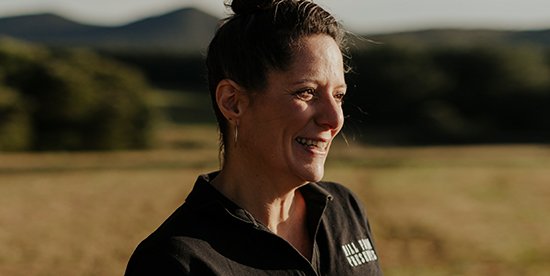
Karin Luttmer
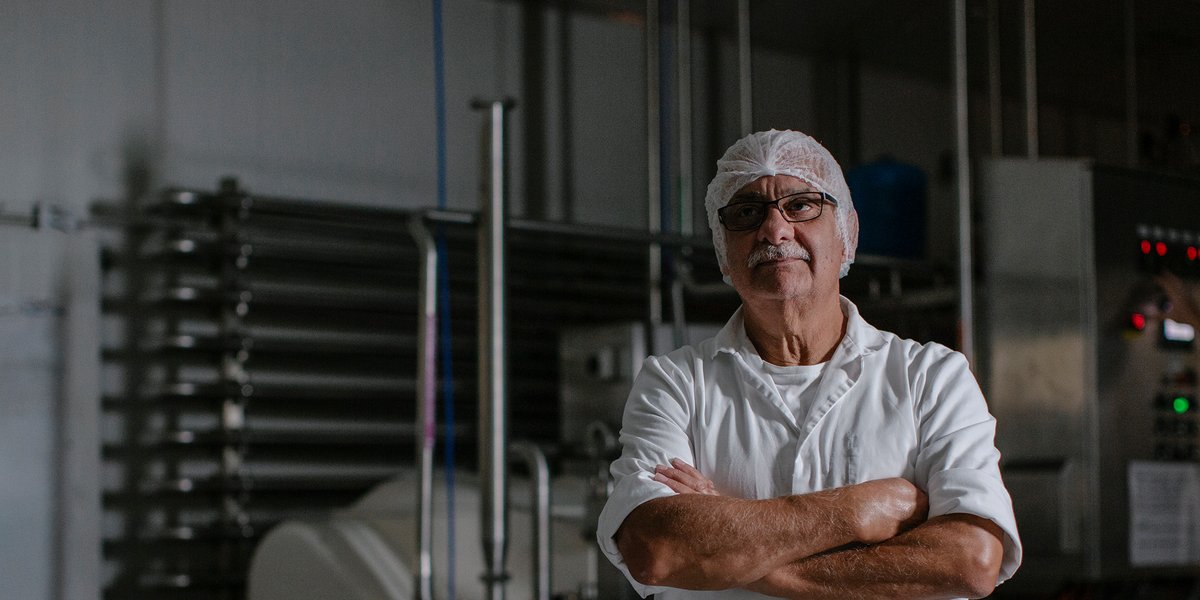
Archie Matteo
